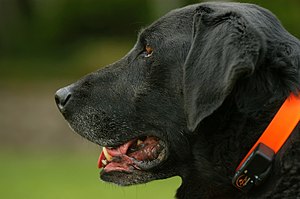| Space Canine Patrol Agents (Photo credit: Wikipedia) |
Tony liked to go off on his own, so we were always careful about closing doors and making sure he hadn't been digging under the backyard fence, but sometimes he just managed to slip out (little dogs can get through very small spaces). When he was first diagnosed with diabetes and put on insulin, I worried about this, so I ordered him a new I.D. tag. The front had his name, but underneath that it said "I have diabetes." My name and phone were on the back. I should point out that one of my worries with him getting loose was that the people who found him might want to keep him, since people went crazy over him every time I took him anywhere, so I had already had him microchipped.
Well, one night his new tag was tested. It was about 10PM in early September, and my brother in law Steve wasn't paying attention when he went out to get something from his car. Tony was off to the races. We all went out and searched the neighborhood, without any luck.
You can imagine how happy we were when, right after we got back to the house, the phone rang (with good news). It was a man who lived on the other side of the subdivision (I wish I could remember his name), and he had Tony. Steve (who felt very guilty) volunteered to go get him. It turned out that for some reason only a dog would understand, Tony had gone to the back door of that house and started barking. The man opened the door to see what was going on, and Tony ran in, just as if he owned the place. The man told Steve that he called as soon as he saw the tag that said Tony had diabetes. So, not only did we get Tony back, but we didn't have to spend the whole night worrying, which had happened in the past. And that was a real possibility, according to Steve, who said that when he got there, the children of the house were playing with Tony -- and they were not happy that he had to leave. I can see someone waiting to call until morning, considering it was late.
My advice: get the microchip, but be sure to put the diabetes on the dog's tag. It's a little bit of insurance that might make a difference.




![Reblog this post [with Zemanta]](http://img.zemanta.com/reblog_e.png?x-id=d349a44f-1b54-4155-8b52-3cbcc8ae8d01)






